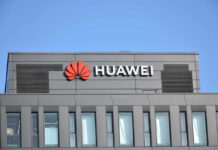
European leaders have spent years signaling their intent to break away from dependence on the United States, but a rocket crash off Norway’s coast Sunday illustrated how far behind the continent remains in real capabilities.
A German aerospace company, Isar Aerospace, launched a two-stage orbital rocket named Spectrum from the Andoya Spaceport in northern Norway. The launch lasted barely 30 seconds before the rocket spiraled into the sea. Though billed as a historic first for Europe, the mission ended in flames just off the coast.
Europe: “Trump is bad—we don't need America anymore”
Also Europe trying to launch its first orbital rocket 👇🏻🤦🏻♂️ pic.twitter.com/ZOdwn4JWZH
— Majority Unsilenced (@MajUnsilenced) March 30, 2025
The company called the explosion a “great success,” pointing to data collected during the short flight. CEO Daniel Metzler said the test “met all our expectations” and confirmed the termination system worked as intended.
Still, the spectacle of smoke and failure was a far cry from the repeated success of U.S. operations. SpaceX, for instance, has deployed hundreds of rockets into space, many of them reusable. Even government operations from NASA have far outpaced anything Europe has done without relying on foreign soil.
😂 Europeans are adorable
— The Blue State Refugee (@TheMigrantKing) March 30, 2025
European officials have long used the language of independence, often criticizing U.S. leadership while publicly pursuing their own vision. Yet when it comes to advanced fields like space technology, the continent still depends heavily on American platforms.
Most launches by the European Space Agency still originate from French Guiana in South America or from Cape Canaveral. The failed Norwegian launch, intended to be a milestone, only underscored the gap between rhetoric and reality.
Virgin Orbit, another European-backed project, tried and failed in 2023 to launch from the U.K. That mission also ended in disaster and helped sink the company.
The Spectrum rocket was not carrying any cargo and had no expectation of reaching orbit. Its developers had framed the attempt as a data-gathering exercise from the beginning. But as the rocket plunged back to Earth, so too did European ambitions of keeping pace with the U.S. and China in the global space race.

























